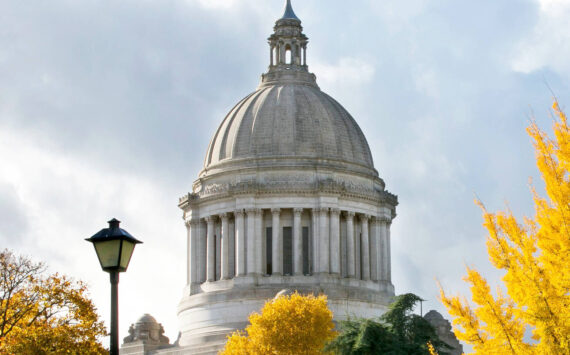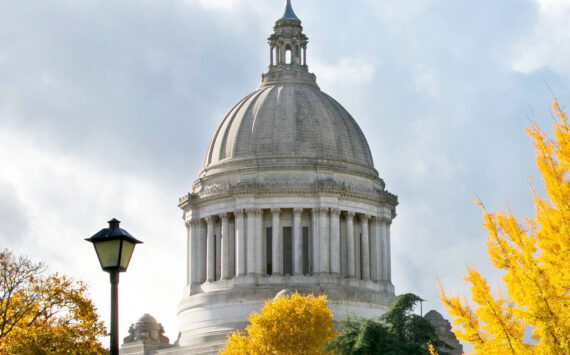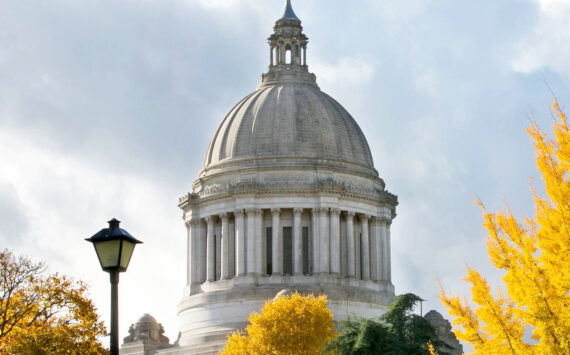For voters looking for an objective and thorough analysis of I-976, we recommend a new report from the Washington Research Council. The six-page analysis –http://researchcouncil.org/wp-content/uploads/Init976.pdf – details the fiscal impacts of the initiative and its consequences for transportation planning. Here’s the WRC summary:
I-976 would limit annual state and local vehicle license fees to $30, revoke the authority for transportation benefit districts to impose vehicle fees, repeal the state motor vehicle sales tax, revoke Sound Transit’s authority to impose a motor vehicle excise tax (if possible to do so under the terms of its bonds), and specify that any motor vehicle excise tax be calculated based on the vehicle’s Kelley Blue Book value.
The Office of Financial Management estimates that, over six years, I-976 would reduce state revenues by $1.923 billion and local revenues by $2.317 billion. In 2019–21 alone, state revenues would be reduced by $478 million. Much of the state revenue reduction would accrue to the multimodal account, which funds projects including public transportation, rail, and cycling. There would also be significant impacts to the motor vehicle account and other accounts that pay for road projects and repairs. Sound Transit’s revenues would decrease by $328 million a year, and local transportation benefit district revenues would decline by $58 million a year.
Providing for the transportation of people and goods is a vital role of government. The significant funding reductions that would result from I-976, at both the state and local levels, would require lawmakers to rewrite transportation budgets—putting many projects and programs at risk.
Highly recommended.
And, as a further reminder of the infrastructure problems facing our state, see this QuoteWizard report, “States with the Worst Roads Infrastructure.” –https://quotewizard.com/news/posts/states-with-worst-infrastructure. The report leads with why this is important:
The nation’s infrastructure is frequently talked about at political campaign rallies. The promise of better roads, funding and jobs created from infrastructure projects are key ticket items. They’re right about the nation needing infrastructure improvements: a Federal Highway Administration reports show 61% of the country’s highways are in fair to poor condition. Transportation for America estimates a cost of $231 billion a year to keep our existing road network in acceptable repair.
Taxpayer funded highway capital delegated for states to maintain roads isn’t enough to cover necessary repairs. Many states are spending the majority of their highway capital on expansion instead of maintenance of roads. At this rate, it becomes a never ending game of maintenance catch up. On top of taxpayer dollars, it’s estimated that driving on roads in poor condition costs motorists $120 billion in vehicle repairs and operating costs. That’s $533 per driver.
There’s more in the report. Washington does not come off well in the analysis. The Puget Sound Business Journal writes,
Washington’s road infrastructure ranks in the bottom half of U.S. states, according to a recent study.
Seattle-based QuoteWizard, LendingTree’s online insurance marketplace, ranked the condition and investment in roads for all 50 states, based on an analysis of Federal Highway Administration data.
Rankings are a composite score based on percentage of roads in poor condition, annual cost per driver due to roads that need repair and the percentage of structurally deficient bridges…
Here’s how Washington, which ranks 30th overall, stacks up in each category:
Roads in poor condition: 29 percent
Annual cost per motorist: $643
Bridges structurally deficient: 4 percent
Spending on road repairs: 21 percent
As the WRC concludes,
Providing for the transportation of people and goods is a vital role of government.
I-976 puts a lot at risk.
– Opportunity Washington


Business, labor & environmental leaders: “Initiative 976 will slow our traffic and the economy.”
The case against Initiative 976 is made effectively in a Seattle Times op-ed by Larry Brown, president of the Washington State Labor Council, AFL-CIO; Steve Mullin president of the Washington Roundtable; and Alex Hudson, executive director of Transportation Choices Coalition. The three are leaders among the coalition of labor, environmental, civic, and business organizations working to defeat the initiative.
They write,
The public has been clear and consistent: We need better roads and more transportation options. As a result, investments at the local and state level are being used to prioritize road improvements, increase safety for bridges and overpasses and expand mass transit services where they matter most.
Initiative 976 threatens to undo all of that, and will slow our traffic and the economy.
This isn’t just about commute times, it’s also about jobs. Huge amounts of raw materials, agricultural goods and manufactured products move via roads and railways. That’s why our state’s business, labor and environmental leaders have all come together to oppose I-976. We agree that I-976 threatens our economy and our environment. It is far too costly.
We’ve written previously about the initiative, citing the reasons I-976 is opposed by the Association of Washington Business, the Seattle Times editorial board, and the Walla Walla Union-Bulletin editorial board.
Brown, Mullin and Hudson emphasize the wide-spread economic, safety and mobility damage passage of the initiative would wreak.
I-976 cuts $4 billion in state investments in roads, bridges, overpasses, ferries and transit service over the next 10 years. That’s not all. It would also cut $15 million per year from the Washington State Patrol, and threatens services like bus passes for low-income families, dial-a-ride, disaster relief transit, and tribal transit operations. Senior citizens, youth, veterans and people with disabilities depend on these services for basic mobility.
I-976 would also cut projects that have already been approved by voters, including Sound Transit. Cutting Sound Transit funds means the agency will have to borrow even more money to deliver on projects, and it will have to pay higher interest rates. Just like a pay cut makes it harder and more expensive to get a mortgage, the $7 billion cut to transit revenue leads to $13 billion in extra borrowing costs between 2021-2041, for a total $20-billion impact.
Read the whole thing. For more information, review the fiscal impact assessment produced by the state budget office, the material at the No on 976 website: https://www.no976.org/, and watch these videos: https://opportunitywa.org/watch-these-videos-to-learn-why-business-labor-environmental-and-civic-groups-oppose-car-tabs-initiative-976/
– Opportunity Washington







